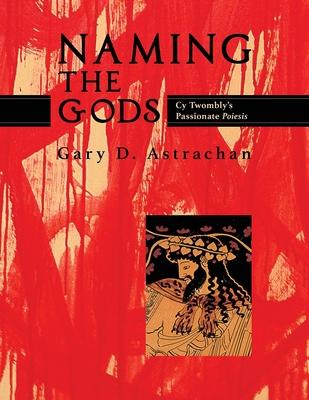Naming the Gods: Cy Twombly's Passionate Poiesis concerns itself with the contemporary art work of Cy Twombly as seen against the deep background of classical Greek mythology. In particular, the two entwined figures and images of Orpheus, lyre player, lover and journeyer to the underworld, and Dionysos/Bacchus, god of wine, ecstasy and madness, are taken up as the two principal thematic leitmotifs which animate and overarchingly inform Twombly's entire artistic oeuvre across all the mediums in which he worked, both literally and symbolically, from the early 1950's until the last series of brilliantly colored paintings he made just before his death in 2011. His preoccupations with the rhythms of language, poetry and writing on the one hand, and his tendencies towards wildly expressive gestural abstraction on the other, ultimately combine in his creation of a genuinely new and original performative aesthetic which unites and connects the powerful impulses of mark-making, painting and assembling with the basic human needs for individuation, realization and redemption.
In a long and rich tradition of sublime poiesis spanning ancient Greek tragedy, through Romanticism, the poets Friedrich Hlderlin and Rainer Maria Rilke, and into our own fragmented and imperiled postmodernist times, Twombly's artistic corpus is viewed as providing a radically renovative relationship and practice for honoring, working with and valorizing both psyche and matter, the inner and outer worlds, as well as with delimiting a uniquely germinative and seminal space for the further enactment of creative human 'doing, ' 'making, ' 'pro-ducing, ' and 'being, ' in reciprocal and intimate relationship with the otherness of 'things, ' nature and the environment.
